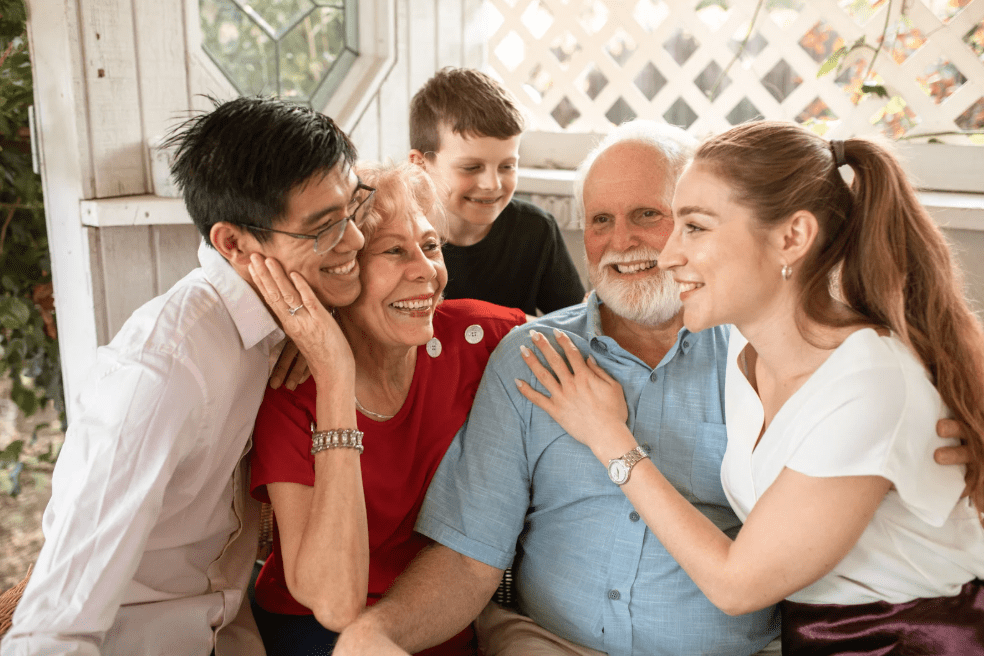
Table Of Contents
Increased Risk of Alzheimer’s in Veterans
What is Alzheimer’s Disease?
Alzheimer’s disease is a type of dementia that causes problems with memory, thinking, and behavior. It is an irreversible, progressive brain disorder that slowly destroys memory and thinking skills, and eventually, the ability to carry out simple tasks and daily activities.
Memory problems are typically one of the first signs of cognitive impairment related to Alzheimer’s disease. Decline in non-memory aspects of cognition, such as word-finding, vision/spatial issues, and impaired reasoning and judgement may signal the early stages of Alzheimer’s disease as well.
Alzheimer’s disease is currently ranked as the sixth leading cause of death in the United States. However, it is also rated third, just behind heart disease and cancer, as a cause of death for older people.
About the Study
A study from Boston University’s School of Medicine raises the possibility that close-range blast exposure among veterans with a genetically higher risk for Alzheimer’s disease may make them more susceptible to neurodegenerative conditions.
Prior research has shown that there is a connection between traumatic brain injury (TBI) and dementia amongst veterans. A June 2019 study showed that TBI with and without loss of consciousness are both associated with heightened risk of developing dementia. However, it has been unknown if blast exposure also interacts with Alzheimer’s disease risk.
Close-Range Blast Exposure and Alzheimer’s Disease
The researchers at Boston University looked at whether there was a relationship between Alzheimer’s disease and close-range blast exposure in a group of 200 Iraq and Afghanistan War Veterans.
The study found that veterans who had close-range blast exposure and carried the genetic risk factor has more spatially diffused white matter. This means that those who experienced a blast exposure within close-range and have elevated genetic risk for neurodegenerative disease may be at a great risk for neurodegeneration and Alzheimer’s disease.
VA Healthcare for Dementia and Alzheimer’s Disease
Care for veterans with dementia or Alzheimer’s disease is provided throughout the full range of VA healthcare services. Depending on the veteran’s needs, services may include any of the following:
Home-Based Primary Care
The Home-Based Primary Care Program allows veterans to be seen by a medical professional, such as a physician, nurse practitioner, or nurse, in their own home. Through this program, veterans are able to:
- Receive primary care visits from a physician, nurse practitioner, or physician’s assistant at home;
- Have their care managed by a nurse practitioner, physician’s assistant, or nurse at home;
- Have their services coordinated by a social worker;
- Receive occupational, physical, or speech therapy;
- Obtain mental health services;
- Get nutrition counseling from a dietician;
- Get help managing medications
Homemaker and Home Health Aide Care
A Home Health Aid or Homemaker is a trained individual that travels to a veteran’s home in order to assist them with activities of daily living, including self-care. These professionals are not nurses and therefore do not provide the level of medical care that a Skilled Home Health Care professional can. This program can be used as an alternative to nursing home care and may offer respite care for veterans and their caregivers. These professionals can assist veterans in:
- Eating
- Bathing
- Getting dressed
- Using the restroom
- Cooking
- Food shopping
- Doing laundry
- Taking medication
Adult Day Health Care
The Adult Day Health Care program gives elderly veterans a place to go during the day for social and recreational activities, to receive peer support and companionship, while also assisting with activities of daily living. This program can especially benefit veterans who are isolated or whose caregivers are “experiencing burden,” offering respite care for family caregivers. Health services from nurses, social workers, or therapists may be available to veterans in this program as well. Veterans can attend full or half-day sessions for up to five days per week based upon availability.
Hospice Care
Veterans suffering from a terminal condition and no longer seeking treatment other than palliative care may be eligible for hospice care services from VA. Hospice care seeks to relieve suffering and help control symptoms near the end of a person’s life. Bereavement support is also available to the families of veterans.
Usually VA’s hospice program is reserved for veterans with less than six months to live and can be offered at home, in an outpatient clinic, or in an inpatient setting. All veterans enrolled in VA healthcare are eligible for hospice care if they meet clinical need.
Veterans Help Group have been supporting veterans in getting the benefits they deserve since 1995. If you or a loved one served, and suffer from Alzheimer’s disease, we are here to help. Call Veterans Help Group at 855-855-8992 or complete our free veterans benefits case evaluation form.

Veterans Help Group Serving Our Community
Veterans Help Group Serving Our Community By Bobbi Boudi, Director of Community Outreach & Amy...

How Much Back Pay Will You Receive?
What is VA Disability Back Pay? VA disability back pay is payment for benefits the veteran was...

Your Guide to VA Ratings: Sleep Apnea
Your Guide to VA Ratings: Sleep Apnea Sleep apnea can be a serious condition that may impact...





